8 Best Alternative Business Loans for 2024 [Top Picks]


Alternative business loans are a valuable resource for entrepreneurs in 2024, especially when traditional financing options fall short. These loans provide essential funding with features tailored to meet diverse business needs, including flexibility in repayment, rapid access to funds, and a variety of loan types.
They are designed to support businesses of all sizes, from startups to established enterprises, ensuring that entrepreneurs can secure the financing necessary for growth and sustainability.
When it comes to alternative business loans, certain features stand out.
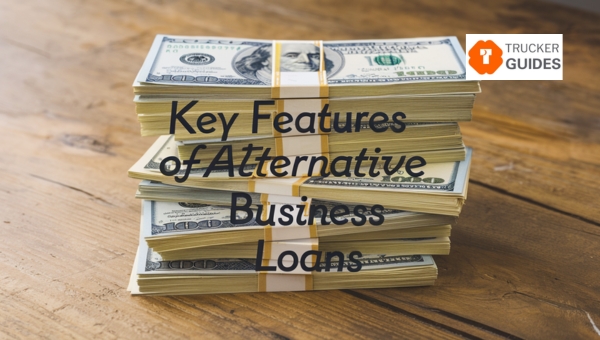
They are designed to be more accessible and flexible compared to traditional loans. Here’s what makes them unique.
Also Read: Best Answering Services for Law Firms [Boost Client Trust!]
The U.S. Small Business Administration (SBA) offers various loan programs designed to assist small businesses in obtaining the necessary funding for startup costs, expansions, real estate purchases, and other business expenses.
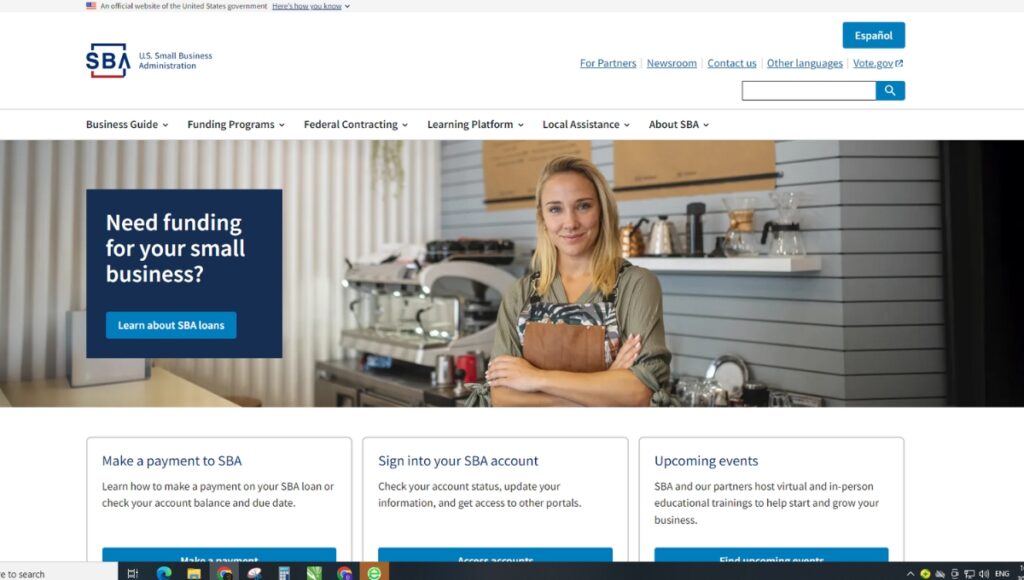
SBA loans are not directly issued by the SBA but are guaranteed by the agency, which reduces the risk for lenders and makes them more willing to provide financing to small businesses.
| Pros | Cons |
|---|---|
| Lower interest rates compared to traditional loans | Strict eligibility requirements |
| Longer repayment terms are available | Personal guarantees required from owners |
| Flexible use of funds for various business needs | Lengthy application process |
| Government backing reduces lender risk | Collateral may be required |
| Access to larger loan amounts | Potential for higher fees compared to non-SBA loans |
SBA loans can be an excellent option for small businesses looking for reliable funding sources, provided they meet the necessary eligibility criteria and are prepared for the application process.
Bluevine is a digital banking platform that provides business checking accounts, lines of credit, and credit cards to small businesses across the United States. Founded in 2013.
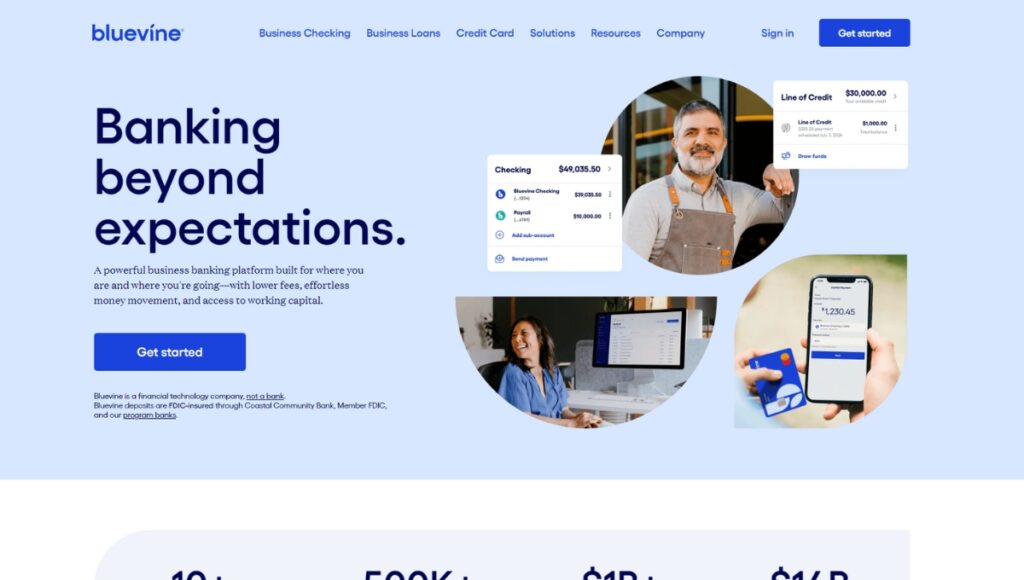
Bluevine aims to offer innovative financial solutions to help small businesses succeed and grow.
| Pros | Cons |
|---|---|
| High-yield interest on checking account balances | Not currently integrated with Zelle for person-to-person payments. |
| No monthly fees, minimums, or penalties | Limited to U.S.-based businesses only |
| Integrated financing options for lines of credit and credit cards | Eligibility requirements may exclude some businesses |
| Advanced security features for peace of mind | Customer support may not be available 24/7 |
| Excellent customer support from real people |
Also Read: 5 Best Bar POS Systems in 2024 [Top Picks Revealed]
Fundbox is an AI-powered financial platform that provides small businesses fast and easy access to working capital solutions, including lines of credit up to $150,000.
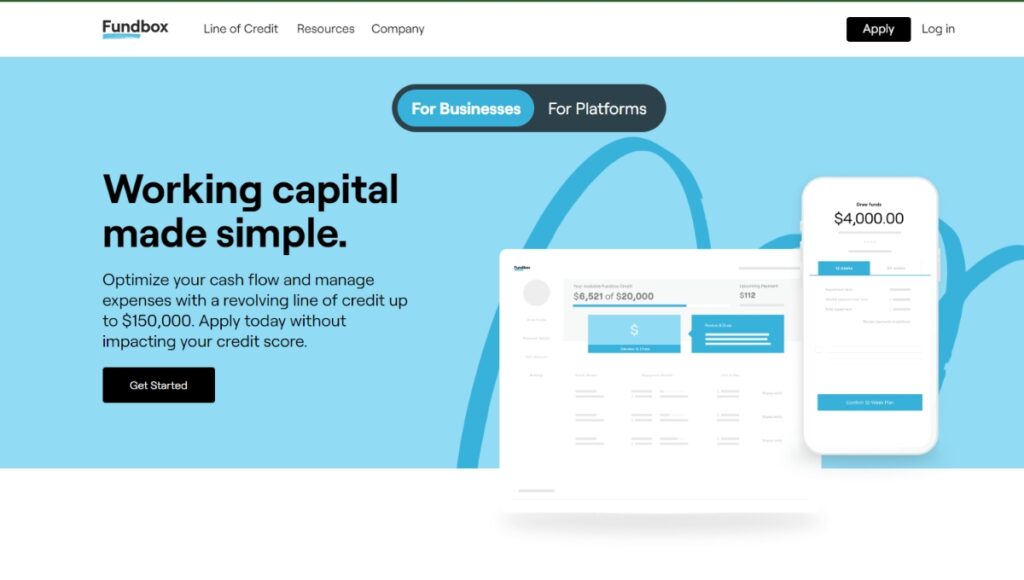
The company’s mission is to unlock growth for small businesses by delivering innovative credit and payment tools.
| Pros | Cons |
|---|---|
| Accessible for borrowers with fair credit | Short repayment terms and weekly payment schedule |
| Quick application process | Limited to lines of credit up to $150,000 |
| No impact on credit score during application | Not ideal for large purchases or well-qualified borrowers |
| Embedded working capital solutions through partnerships | Higher interest rates compared to traditional lenders |
OnDeck is a leading online small business lender that provides flexible financing options to help businesses succeed. Since 2007, OnDeck has delivered over $15 billion in loans to businesses across the U.S. OnDeck is an excellent choice for small businesses looking for fast, flexible, and transparent financing options.
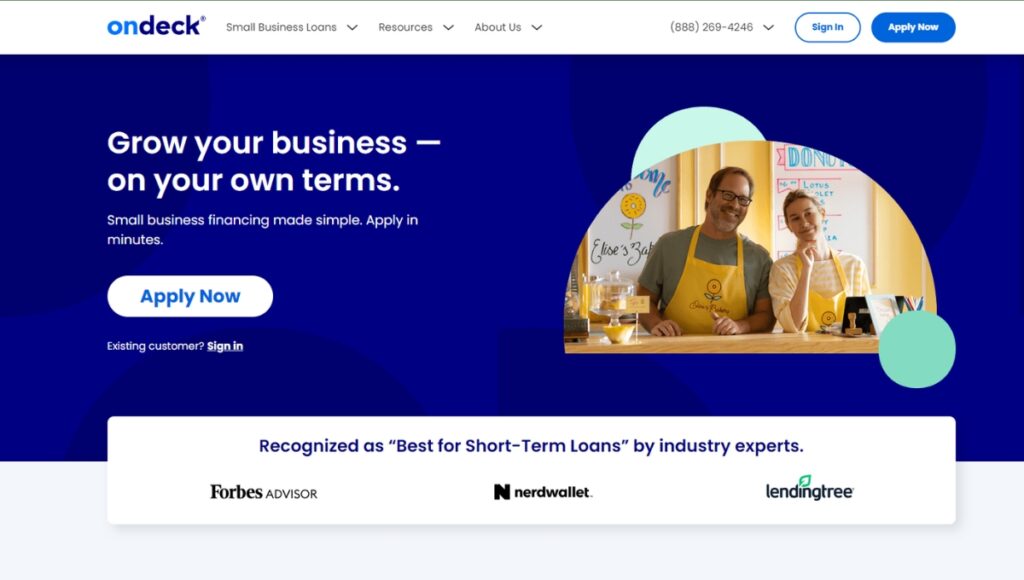
With its streamlined application process, dedicated support, and ability to build business credit, OnDeck helps businesses succeed on their own terms.
| Pros | Cons |
|---|---|
| Fast and easy application process | May have higher interest rates compared to traditional bank loans |
| Flexible financing options (term loans and lines of credit) | Requires a personal guarantee |
| Dedicated loan advisors | Secured term loans require a general lien on business assets |
| Transparent pricing | |
| No hard credit pulls to check eligibility | |
| Builds business credit history |
Fora Financial is an alternative lender specializing in providing working capital loans to small businesses, particularly those with less-than-perfect credit.
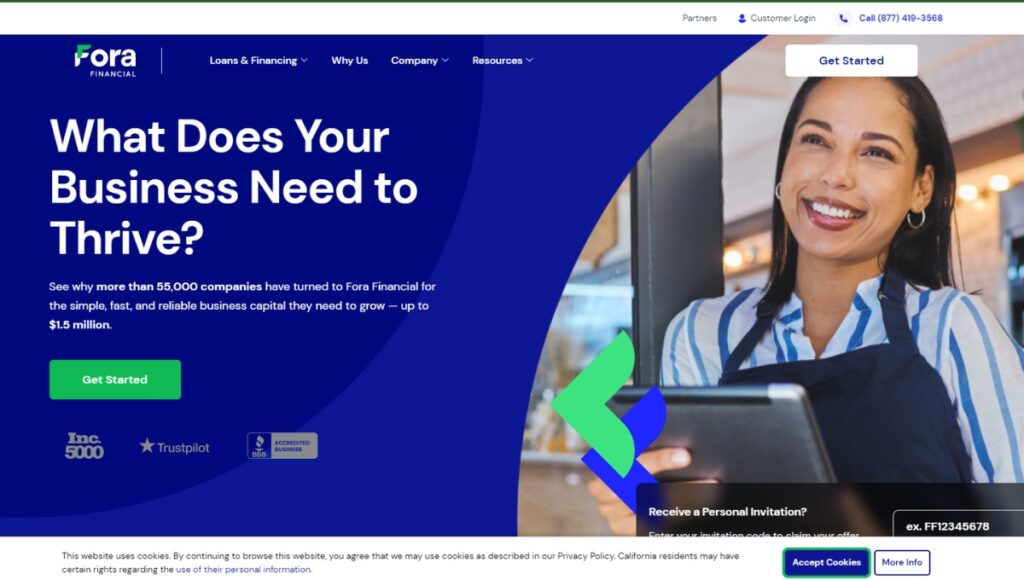
The company offers flexible loan amounts and terms, making it accessible for a wide range of borrowers. Fora Financial aims to support businesses in need of quick funding, with a streamlined application process and fast approval times.
| Pros | Cons |
|---|---|
| Quick approval and funding process | Higher interest rates compared to traditional lenders |
| Flexible eligibility criteria | Shorter repayment terms (up to 18 months) |
| Large loan amounts available | Potential fees may apply |
| Support for businesses with bad credit | Limited in-person customer support |
American Express® Business Line of Credit is a flexible financing option designed for small businesses, allowing them to access funds as needed. This line of credit provides business owners with a revolving credit limit that can be used for various expenses, such as inventory purchases, equipment, or working capital.
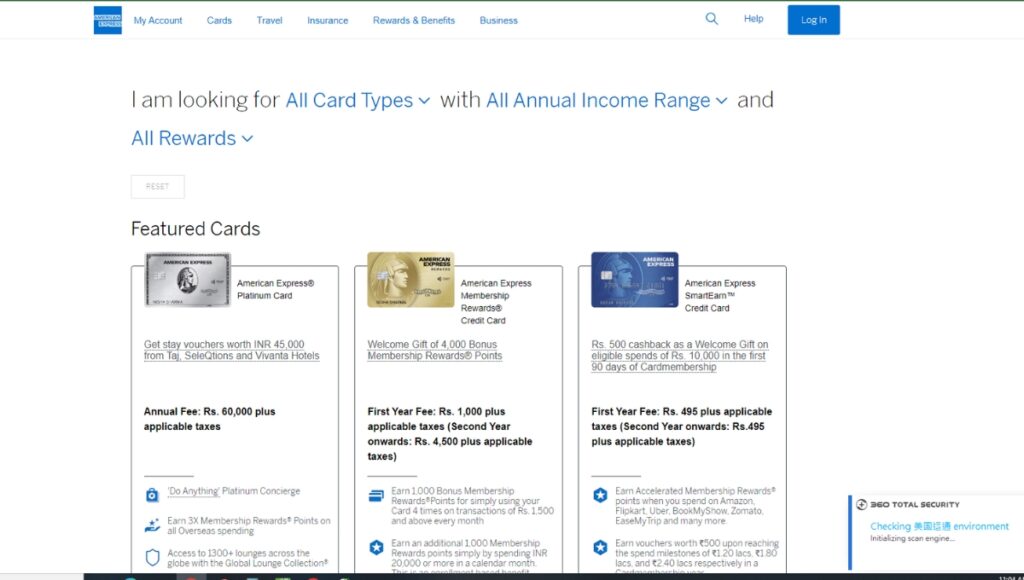
| Pros | Cons |
|---|---|
| Flexible borrowing up to a set limit | Higher interest rates compared to traditional loans |
| Quick access to funds | May require a good credit score |
| No prepayment penalties | Limited to businesses with a strong revenue history |
| Easy online management of the account | Not suitable for businesses needing large sums of capital |
Funding Circle is an online lending platform that specializes in providing business loans to established small businesses. It connects borrowers directly with investors, allowing businesses to access financing quickly and efficiently.
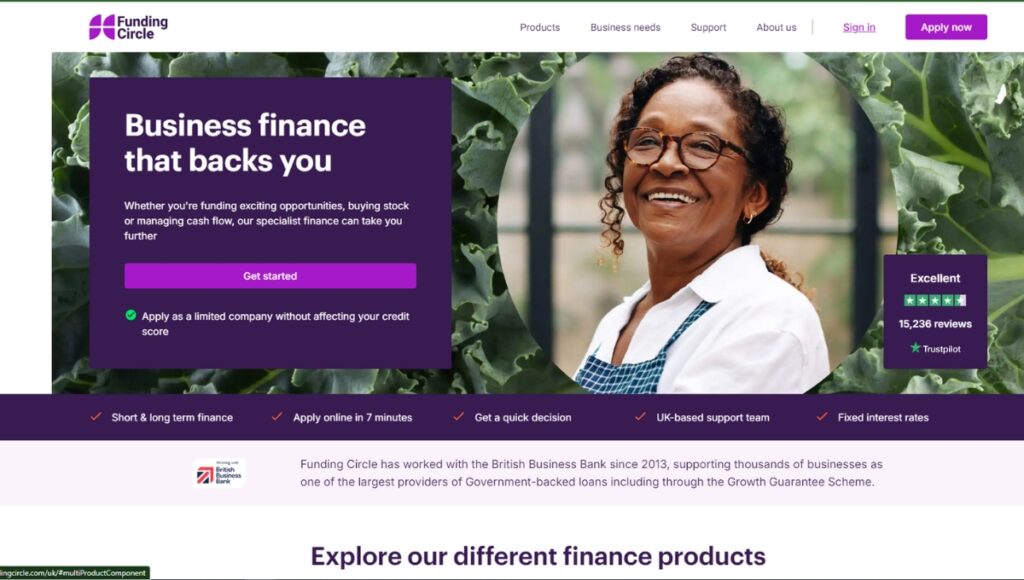
Funding Circle offers loans ranging from $25,000 to $500,000 with terms up to seven years, making it a viable option for businesses looking for flexible financing solutions.
| Pros | Cons |
|---|---|
| Competitive interest rates | Requires a higher credit score |
| Flexible repayment terms | Limited to established businesses |
| Fast application and funding process | May not be suitable for startups |
| Direct access to investors | Higher interest rates compared to traditional loans |
National Funding is a type of alternative lending that provides financial support to small businesses through nonbank lenders. This funding option is particularly beneficial for businesses that may not qualify for traditional bank loans due to stricter eligibility requirements.
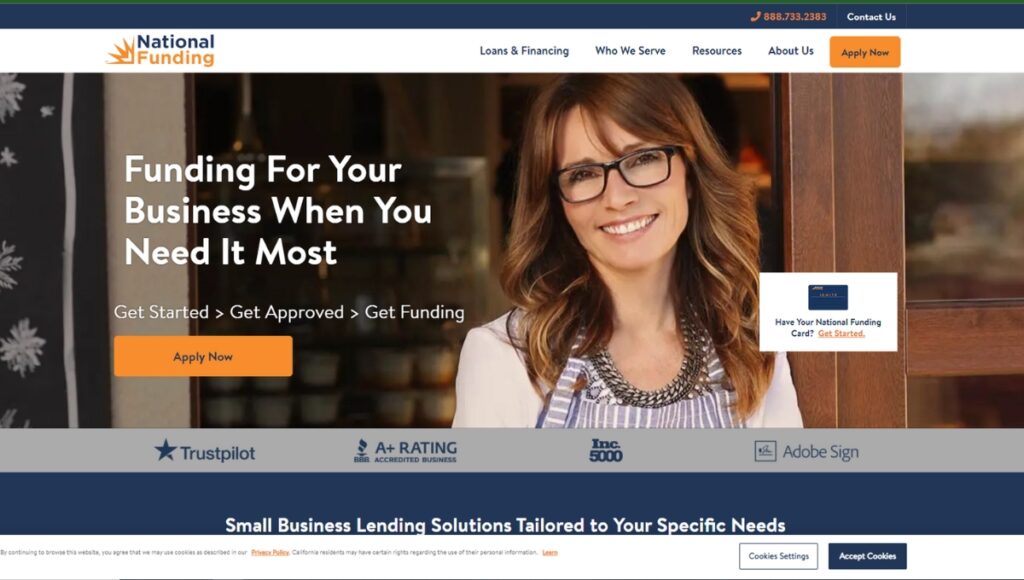
National Funding typically offers a variety of loan products, including term loans, lines of credit, and merchant cash advances, with faster application processes and funding times compared to traditional lenders.
| Pros | Cons |
|---|---|
| Quick access to funds | Higher interest rates compared to banks |
| Flexible eligibility requirements | Shorter repayment terms |
| A variety of loan products are available | Potential for predatory lending practices |
| Online application process | Limited in-person customer support |
National Funding serves as a valuable resource for small businesses seeking quick and flexible financing solutions, especially in situations where traditional loans are not an option.
Also Read: Top 8 Best Restaurant POS Systems [Your Ultimate Guide]
Understanding the pros and cons of alternative business loans can help you decide if they are right for your business.
| Pros | Cons |
|---|---|
| Quick Approval: Faster than traditional loans. | Higher Interest Rates: More expensive than traditional loans. |
| Flexible Terms: Customized repayment schedules. | Shorter Repayment Terms: This can lead to higher payments. |
| Diverse Options: Various loan types are available. | Strict Revenue Requirements: May need regular income |
Choosing the right loan involves careful consideration of various factors. Here’s how to find the best fit for your business.

Start by evaluating what your business needs. Determine the amount you need, how quickly you need it, and what you will use it for. This helps narrow down the options and ensures you choose a loan that aligns with your goals.
Look at the interest rates and terms offered by different lenders. Compare these carefully to understand the total cost of the loan. Lower rates and favorable terms can save you money in the long run.
Consider how flexible the repayment terms are. Some loans offer more adaptable schedules, allowing you to choose the frequency and amount of payments. This flexibility can be crucial in managing your cash flow effectively.
Business loans don’t have to be daunting. The 8 best alternative business loans for 2024 offer various options tailored to different needs. Whether you’re a small business owner or an entrepreneur looking for flexible terms and quick access to funds, there’s a solution for you.
Assess your needs, compare rates, and consider repayment flexibility to make an informed decision. Remember, choosing the right loan can significantly impact your business’s growth and success. For more insightful tips and comprehensive guides, explore our other blogs. Stay informed, and empower your business journey!